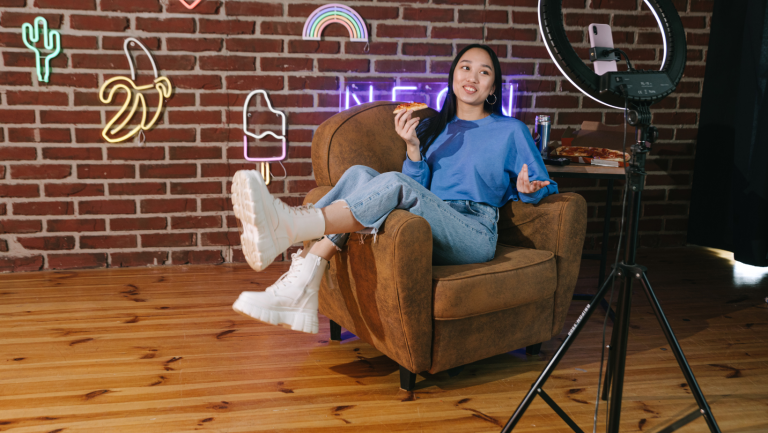By Amanda Webster, Chief Operating Officer – Fund&Grow
Influencer marketing has become one of the most effective ways for brands to reach potential customers and increase sales. Influencer gifting campaigns, where brands send free products to influencers in exchange for exposure on their social platforms, can deliver impressive results when executed strategically. But fail to put thought into an influencer gifting initiative, and brands risk spending money on gifts that yield low engagement and make little business impact.
The key to successful influencer gifting campaigns lies in the initial outreach through to thoughtful campaign execution. Rather than sending products randomly hoping an influencer might feature them, brands should employ targeted strategies for identifying the right influencers, structuring win-win compensation, providing real value, collaborating closely on content, and tracking measurable results.
Identifying The Right Influencers
The first critical step for a successful influencer gifting campaign is identifying the right influencers to receive your products. You’ll want to ensure the influencers you select have an engaged audience that aligns closely with your target demographic and customer base.
Start by thoroughly analyzing potential influencers’ audience and content statistics. Look for influencers who regularly achieve high engagement rates on their posts, indicating an audience that actively interacts with and trusts that influencer, and ensure the majority of their audience falls into your target demographics.
Additionally, vet potential influencers to confirm they share similar values, aesthetics, and content styles to your brand. For example, a minimalist home decor brand should seek out lifestyle influencers who regularly feature clean, modern interiors. This alignment will lead to more authentic and compelling influencer content.
It’s also wise to research what brands potential influencers have worked with previously. You need to know if they’ve partnered with direct competitors or if past brand partnerships appear to fit that influencer’s interests and feed aesthetic organically. These clues can reveal whether an influencer is willing to recommend products they genuinely like and use.
With many brands now running gifting campaigns, be sure the influencers on your list haven’t become oversaturated with promotions. Seek out micro and niche influencers still eager for new partnerships and remain highly engaged with their narrowed audience.
Offer Valuable Compensation
Once you’ve identified well-matched influencers for your campaign, consider what compensation you can provide in return for their promotional efforts. The foundation of an influencer gifting collaboration is sending free products for that influencer to feature, review, and recommend to their audience.
When determining how many product units to gift, there are several components to consider:
- The following size of that influencer. If it’s a small following, one to two products would suffice, but if it’s larger, they’ll expect four to five units.
- Many top-tier — and even mid-tier — influencers expect monetary compensation for their services on top of the free products. Consider offering an additional payment of $100-500 or more.
- Don’t low-ball influential collaborators or not even offer monetary compensation. Many influencers will reject your proposal and blackball you in the influencer community.
Provide Value To Influencers
The products you send to collaborating influencers should offer genuine value from their perspective. Carefully curate gifts you believe that particular influencer will authentically appreciate and potentially incorporate into their lifestyle long-term.
One approach is sending new or newly released products you feel match that influencer’s aesthetic and interests based on the content they currently create. For example, gifting a popular fitness influencer the latest model of a cutting-edge activity tracker.
Consider sending influencers unique products or configurations that aren’t widely available yet. Exclusive early access can incentivize influencers to feature the gifted items promptly to capture audience excitement. Even if it’s just something personalized for the influencer, it can be considered an exclusive product.
The products you distribute should solve a need, align with interests, offer exclusivity, or provide customization that genuinely benefits the receiver beyond basic free merchandise. When influencers receive thoughtful, tailored gifts rather than random products, they’re far more likely to repay brands with compelling and authentic recommendations.
Plan and Collaborate
Too often, brands take a hands-off approach after sending off influencer gifts, leaving creators to determine how best to feature the products with minimal input. By taking a collaborative approach and involving influencers as partners in campaign planning, brands can achieve more authentic and strategic promotions.
After identifying well-suited influencers and extending offers, schedule an introductory call to align on overarching campaign goals, ideal content formats, deliverables, and publishing timelines that work for both parties. Ask what type of branded content that influencer typically finds drives the highest engagement from posts.
Share your desired messaging, suggested recipes or ways to use the product, recommended visual assets, wider promotional context, or other supportive elements. But remain flexible for influencers to put their own spin on content based on their expertise regarding what best resonates with their loyal audience.
Track Campaign Results
The final critical component of a successful influencer gifting campaign is properly tracking performance data to quantify your ROI and optimize future initiatives.
Implement trackable links, unique promo codes, and relevant hashtag monitoring to identify direct traffic, sales, and engagement driven specifically by your influencer partnerships. Digital analytics platforms and campaign tracking software provide easy-to-access metrics for ongoing performance insights.
Study the hard conversion numbers and look in-depth at more qualitative engagement metrics like social sentiment, comments, shares, photo tags, and other signs your brand is resonating with your target audience. High-performing influencer content can boost brand affinity and purchases further down the funnel.
Set benchmarks for campaign performance before gifting any products based on factors like that influencer’s typical engagement rates, production costs, and your goals for the partnership, then compare metrics to these KPIs. Surpassing benchmarks indicates effective spending, while falling short points out areas for re-strategizing future collaborations.
Share reports on gifted products’ performance directly with your influencers as well. Transparency builds trust, and creators appreciate understanding the exact impact of their posts, which assists them in assessing fair compensation rates.
Gifting campaigns only succeed when brands move beyond viewing influencers as free advertising channels. By fostering genuine connections with creators, providing legitimate value, and collaborating closely towards shared objectives, brands can build loyalty and brand affinity with desired consumers through recommendations from voices they trust.
About the author
 Amanda Webster is the chief operating officer of Fund&Grow., a national lending program that helps entrepreneurs and business owners across America get access to business funding. She has 20-plus years of experience working in management and company administration, including human resources, marketing, and IT. Amanda is also the editor-in-chief of Prosperity Pulse Magazine, a publication the company publishes in-house monthly.
Amanda Webster is the chief operating officer of Fund&Grow., a national lending program that helps entrepreneurs and business owners across America get access to business funding. She has 20-plus years of experience working in management and company administration, including human resources, marketing, and IT. Amanda is also the editor-in-chief of Prosperity Pulse Magazine, a publication the company publishes in-house monthly.
Related Articles

Transaction-Level Data Is Raising the Bar for Attribution and Accountability
For retailers building or scaling retail media and broader commerce marketing programs, this shift reshapes how audiences should be built and forces a more disciplined approach to transparency and cross-channel accountability.

How Rising Consent Awareness Is Reshaping Customer Experience, Data Quality, and Campaign Performance
It also revealed that another 35% expect to deploy personalized AI recommendations in the next year, as AI moves from pilots into the heart of omnichannel journeys, search and merchandising.

5 Strategies for Scaling BOPIS Operations During Holiday Peak Season
Companies across various sectors are leveraging automation to enhance in-store experiences and improve customer satisfaction, including within BOPIS systems. It is shown to bolster productivity and decision-making, too.

How to Evaluate Retail Automation Solutions for Your Business
To achieve the benefits of retail automation, you must find the right partner. Consider the following tips to make an informed decision.


 for the latest news and job opportunities in retail tech
for the latest news and job opportunities in retail tech 